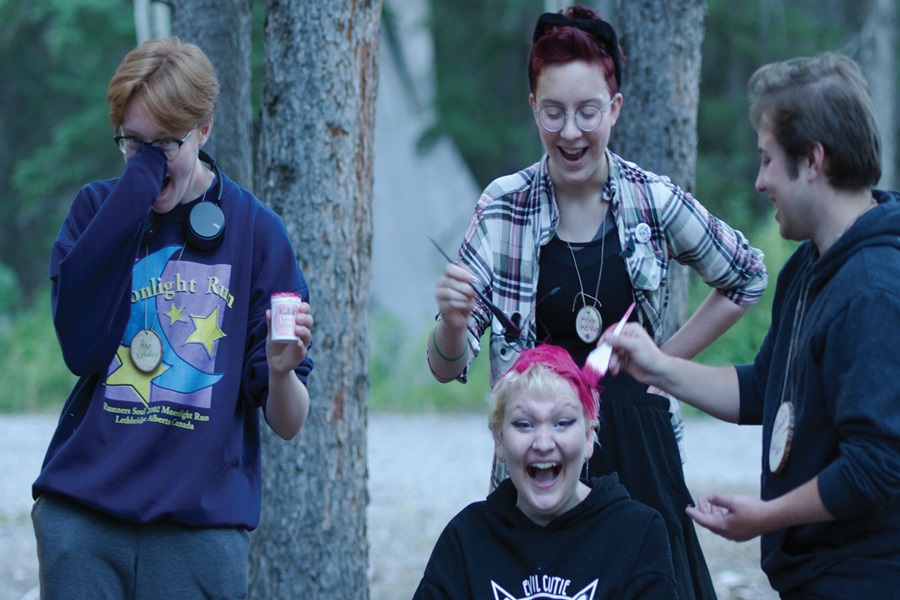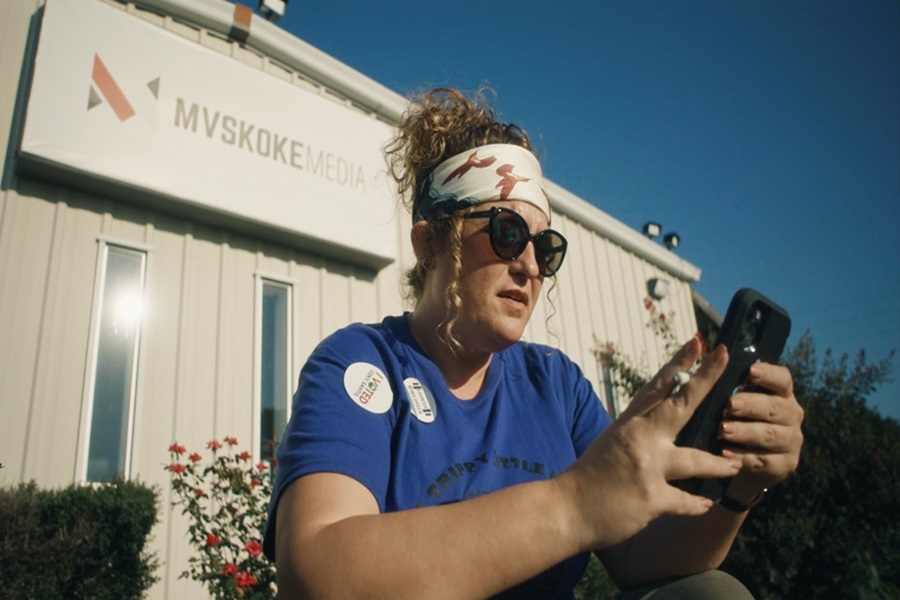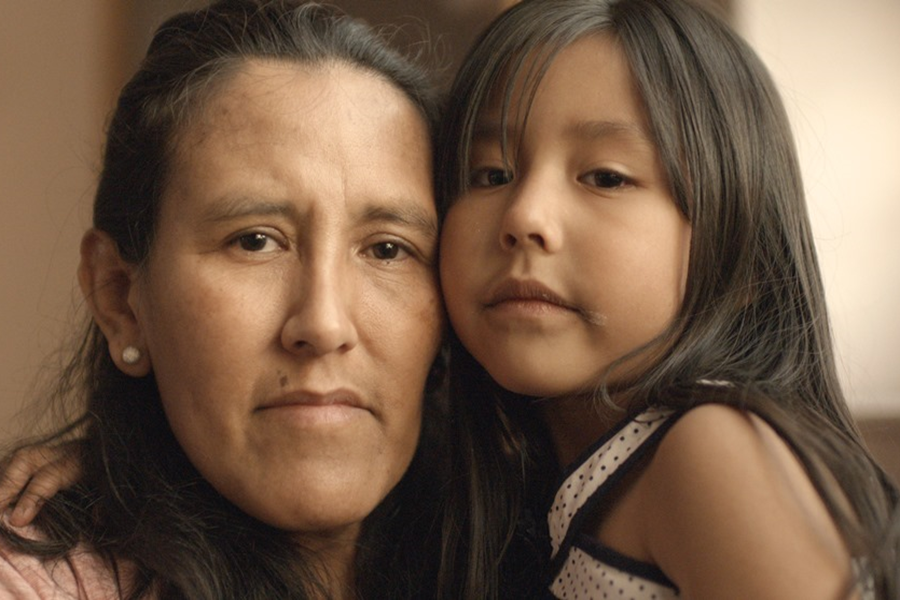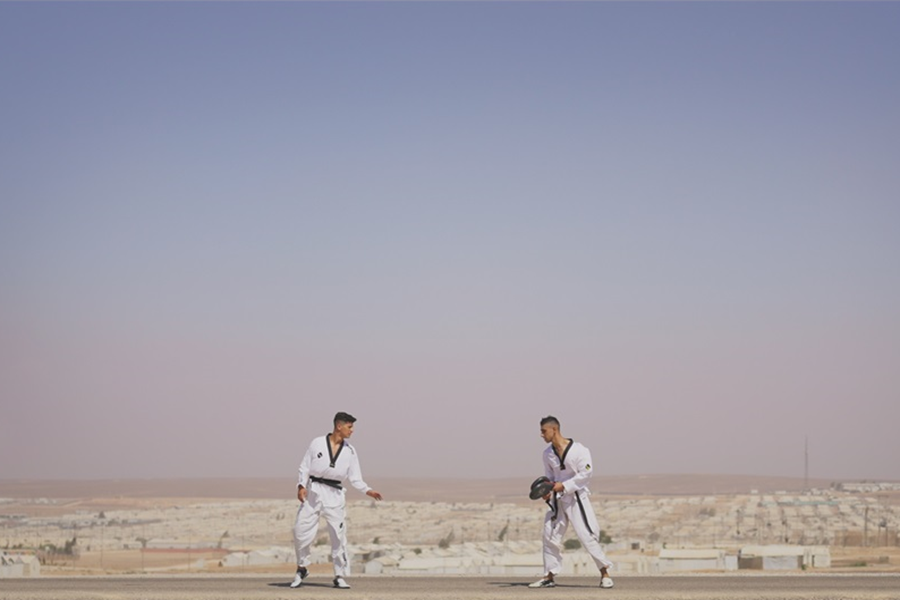San Diego Human Rights Watch Film Festival To Shine Spotlight On Changemakers
The Museum of Photographic Arts at The San Diego Museum of Art (MOPA@SDMA) is hosting its 14th annual San Diego Human Rights Watch Film Festival from February 2 to 10, 2024.
The San Diego Human Rights Watch Film Festival will feature critically acclaimed films on topics including the rights of LGBTQ+ teens, family separation, refugee rights, disability rights, and the right to free and independent press in Native American tribes.
Featured Films for the 14th San Diego Human Rights Watch Film Festival
Each in-person screening will be accompanied by a question-and-answer session with filmmakers and human rights leaders.

Summar Qamp
The festival will kick off in February with an in-person-only screening and opening night reception and celebration of queer joy with the life-affirming film, Summer Qamp, followed by a live panel discussion with the film team and local LGBTQ+ rights advocates.
Summer Qamp follows a group of queer youth as they attend a camp like no other: a judgment-free zone where they explore their authentic selves while building community, finding joy, and making memories that will last a lifetime. Uplifting, funny, and moving, this film invites audiences to experience the innocence and joy of a summer away with friends while never losing sight of the bravery of these young protagonists.

Bad Press
Following the opening night celebration, the festival will continue on Saturday, February 3, with three San Diego film premieres, including Bad Press, the Sundance award winner for “U.S. Documentary Special Jury Award: Freedom of Expression.”
The landmark film follows the story of what happens when the elected leaders of the Muscogee Nation, the fourth largest Native American tribe, curb press freedom by giving officials the authority to edit all news stories before they reach the public, and a rogue Mvskoke Media reporter fights to expose her government’s corruption in a historic battle that will have far-reaching ramifications for Native American communities.

Si Pudiera Quedarme (If I Could Stay)
Next up at the festival is the California premiere of Si Pudiera Quedarme (If I Could Stay), a film by California-based filmmakers Florencia Krochik and Theo Rigby.
The film chronicles the story of two undocumented mothers, Jeanette and Ingrid. As they face deportation and separation from their young children, they and their communities rally support to keep them safe despite the risks.
A story of courage and allyship, Si Pudiera Quedarme is a timely look at the transformative power of communities uniting for justice.

We Dare to Dream
The final film in the in-person lineup is Waad al-Kateab’s film, We Dare to Dream. The film shares the story of athletes from Iran, Syria, South Sudan, and Cameroon—all refugees who swim, run, and fight their way to opportunity and safety in host nations across the world.
Spanning a breadth of backgrounds, personal stories, and Olympic sports, the film reveals their lives and hopes as they train to compete on the world stage, showing the fire and the drive of young people forced to leave their families, homes, and countries of birth to build new lives.
Online Streaming
Following the in-person screenings at MOPA@SDMA on February 2 and 3, the festival will continue online, streaming to homes across the US from February 4 to10 with five films, including two online exclusives: Ella Glending’s Is Anybody Out There? and Seven Winters in Tehran.
In Is Anybody Out There?, filmmaker Ella Glendining asks the question: “What does it take to love yourself fiercely as a disabled person in a non-disabled world?” The multiple award-winning Seven Winters in Tehran chronicles the life of 19-year-old Reyhaneh Jabbari, who became a symbol of resistance and women’s rights in Iran and worldwide.
The films Bad Press, Si Pudiera Quedarme (If I Could Stay), and We Dare to Dream will also be included in the digital lineup.
Digital festival passes are available to US viewers here to watch the festival films anytime from February 4 at 9 AM PST through 11:59 PM PST on February 10.
The Human Rights Watch Film Festival’s Commitment to Storytelling and Justice
“The world needs to hear more stories of the passion, hard work, and commitment of everyday people to make a positive difference in the world and in the lives of people around them,” said Jennifer Nedbalsky, Deputy Director of the Human Rights Watch Film Festival.
“Even as our world is facing enormous challenges, I have been able to find many rays of hope in the stories being presented this year in San Diego.”
“From the celebration of Queer joy found in Summer Qamp, to the strength of the support found between two undocumented mothers and the faith community who support their fight to stay in sanctuary with their children in Si Pudiera Quedarme, (If I Could Stay), we can see the power of human connection, and how small things we can all do can have a tremendous impact.”
“For the 15th edition of the Human Rights Watch Film Festival San Diego, we are honored to host filmmakers and changemakers who are pushing for human rights in the US and across the globe,” said Deidre Guevara, Director of Community Engagement at The San Diego Museum of Art.
Meaningful Conversations
“This year, we shine a light on important topics like US immigration while also celebrating queer joy, the power of allyship, and communities working together for change. Through the power of film and meaningful conversations around issues that affect millions, we hope to bring people together while inspiring others to speak out and fight for justice in their communities.”
“One person’s story has the power to change the way we think and inspire others to take action, and that’s why we’ve been bringing the Human Rights Watch Film Festival to San Diego for more than a decade,” said Melissa Pfeiffer, Senior Manager of Events and Community Partnerships at The San Diego Museum of Art.
“The festival is our opportunity to invite our community to take part in important conversations around issues impacting us here in San Diego and around the world. We are proud to celebrate the courageous filmmakers and their dedication to human rights.”
This year’s hybrid in-person and virtual Human Rights Watch Film Festival will serve as a vehicle to empower, educate, and mobilize an audience throughout the country. The direct storytelling that brings to life current human rights situations across the globe will challenge the audience to empathize and promote justice for everyone.
Audiences who feel personally connected to these films will be provided with resources and information so they can take action around the issues presented in each film.
Film Schedule | QA Panels
- Friday, February 2 at 6 PM PST (Opening Night – in-person-only screening and reception at MOPA@SDMA) | Summer Qamp (2023) by Jennifer Markowitz
- Saturday, February 3 at 1 PM PST | Bad Press (2023) by Rebecca Landsberry-Baker (Muscogee Creek) and Joe Peeler
- Saturday, February 3 at 4 PM PST | Si Pudiera Quedarme (If I Could Stay) (2024) by Florencia Krochik and Theo Rigby
- Saturday, February 3 at 7 PM PST | We Dare to Dream (2023) by Waad al-Kateab
Festivalgoers across the U.S. can watch online anytime from February 4 to 10:
● Bad Press (2023)
● Si Pudiera Quedarme (If I Could Stay) (2023)
● We Dare to Dream (2023)
Online exclusives:
● Is Anybody Out There? (2023) by Ella Glendining
● Seven Winters in Tehran (2023) by Steffi Neiderzoll
Tickets
In-Person Screenings:
● Individual tickets: $6 members | $8 seniors, military, and students (with ID) | $10 nonmembers
● In-person festival pass to see all four films: $20 members | $30 nonmembers
Digital Tickets:
● Digital-only festival pass provides access to five films online, including two films not available in person: $20 members | $35 nonmembers
● Individual film digital tickets: $6 members | $9 nonmembers
The Human Rights Watch Film Festival team does not want the cost of watching these films to be a barrier to participation. If the price of a ticket to any film screening would prevent anyone from participating, they can email [email protected], to receive a free ticket code. Human Rights Watch has set aside a set number of tickets for each film on a first-come, first-served basis.
See you there!
For in-person film tickets, click here. For in-person festival passes, click here.
See you there, San Diego!














